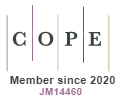Learning and development in children education: contributions of the National Curricular Guidelines and the Common National Curricular Base for this discussion
DOI:
https://doi.org/10.5585/dialogia.N31.11455Keywords:
Early Childhood Education. National Curricular Guidelines. National Common Curricular Base. São Paulo´s School Curriculum.Abstract
The purpose of this text is to reflect on the indications of the Federal Constitution (CF), the National Curriculum Guidelines for Early Childhood Education (DCNEI) and the National Curricular Common Base (BNCC) for the debate on the learning and development of infants and children in Education units and therefore how these documents can focus on the integral development of children. From the critique of educational perspectives in the last thirty years for children from zero to six years, we understand that educational units need to make choices and clearly express their pedagogical intentions in order to make a public commitment to human formation. Formulating goals with the children, families and community defined and sharing them means to take a proactive look at expanding, deepening and complexifying the children's understanding of themselves and the world they inhabit in an egalitarian way and to recognize the school as a formative institution of citizenship. Finally, it presents the discussions that took place in the reformulation of the curriculum of the Municipality of São Paulo based on these documents, their limits and possibilities.Downloads
References
APPLE, M. W. Ideologia e currículo. 3. ed. Porto Alegre: Artmed, 2006.
BAUDELOT, C; ESTABLET, R. La escuela capitalista. Buenos Aires: Siglo XXI Editores, 1975.
BRASIL. Constituição da República Federativa do Brasil. Brasília: Senado Federal, 1988.
BRASIL. Lei n.º 9.394, de 20 de dezembro de 1996. Estabelece as diretrizes e bases da educação nacional. Legislação. Brasília: Casa Civil da Presidência da República. 1996.
BRASIL. Indicadores da qualidade na educação infantil. Ministério da Educação/Secretaria da Educação Básica. Brasília: MEC/SEB, 2009.
BRASIL. Ministério da Educação. Base nacional comum curricular: educação é a base. Brasília: MEC, 2018.
BOURDIEU, P.; PASSERON, J. A Reprodução: elementos para uma teoria do sistema de ensino. Rio de Janeiro: Francisco Alves, 1970.
BROUGÈRE, G. Vida cotidiana e aprendizagens. In: BROUGÈRE, Gilles; ULMANN, Anne-Lise (Orgs.). Aprender pela vida cotidiana. Campinas: Autores Associados, 2012, p. 11-23.
KRAMER, S. A política do pré-escolar no Brasil. Rio de Janeiro: Achiamé, 1982.
KRAMER. As crianças de 0 a 6 anos nas políticas Educacionais no Brasil: educação infantil E/é fundamental. Educ. Soc., Campinas, vol. 27, n. 96 - Especial, p. 797-818, out. 2006.
MARTINS, V. Educação na Constituição de 1988: o artigo 205. Disponível em: <https://www.direitonet.com.br/artigos/exibir/479/Educacao-na-Constituicao-de-1988-O-artigo-205>. Acesso em 20 jan. 2019.
OLIVEIRA, Z M. R. Educação infantil: fundamentos e métodos. São Paulo: Cortez, 2010.
PATTO, M. H. S. A produção do fracasso escolar: histórias de submissão e rebeldia. São Paulo, Tese de livre docência, 1987.
PATTO, M. H. S. A produção do fracasso escolar: histórias de submissão e rebeldia. São Paulo: T. A. Queiroz, 1990.
ROSEMBERG, F. A. Educação pré-escolar brasileira durante os governos militares. Cadernos de Pesquisa, São Paulo, n. 82, p. 21-30, ago. 1992.
ROSEMBERG, F. A. Expansão da educação infantil e processos de exclusão. Cadernos de Pesquisa, São Paulo, n. 107, p. 7-40, jul. 1999.
SARMENTO, M. Sociologia da Infância: correntes e confluências. Estudos da Infância: educação e práticas sociais, p. 17-39, 2008.
SOARES, M. Escola e linguagem: uma perspectiva social. São Paulo: Ática, 2002.
Downloads
Published
How to Cite
Issue
Section
License
Copyright (c) 2019 Dialogia

This work is licensed under a Creative Commons Attribution-NonCommercial-ShareAlike 4.0 International License.
- Abstract 1102
- PDF (Português (Brasil)) 1513






